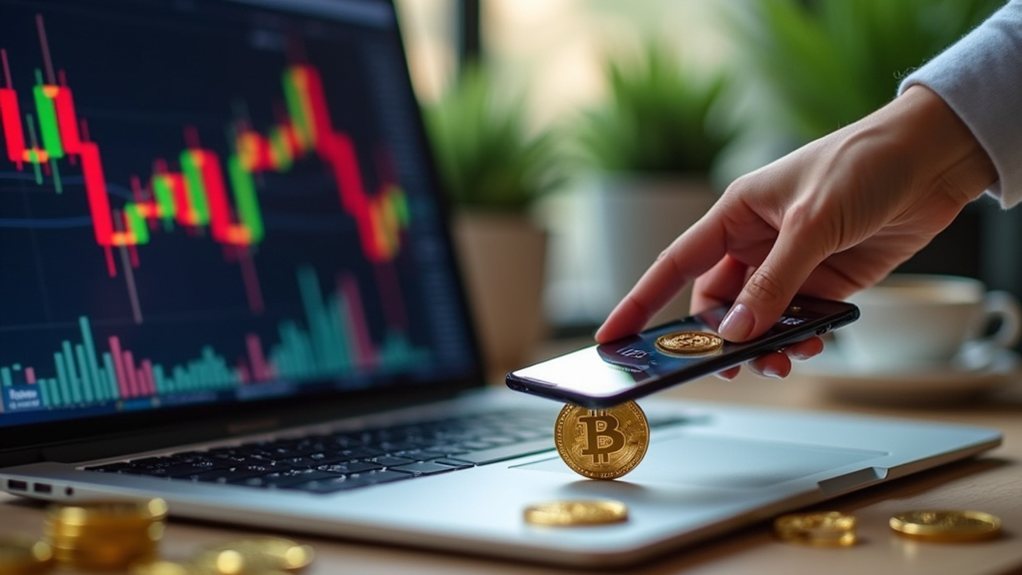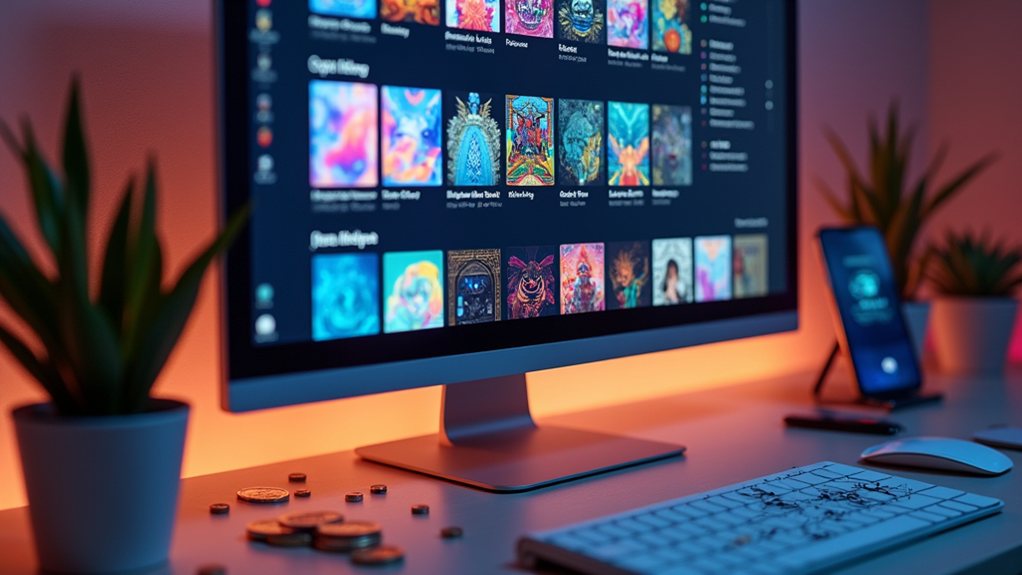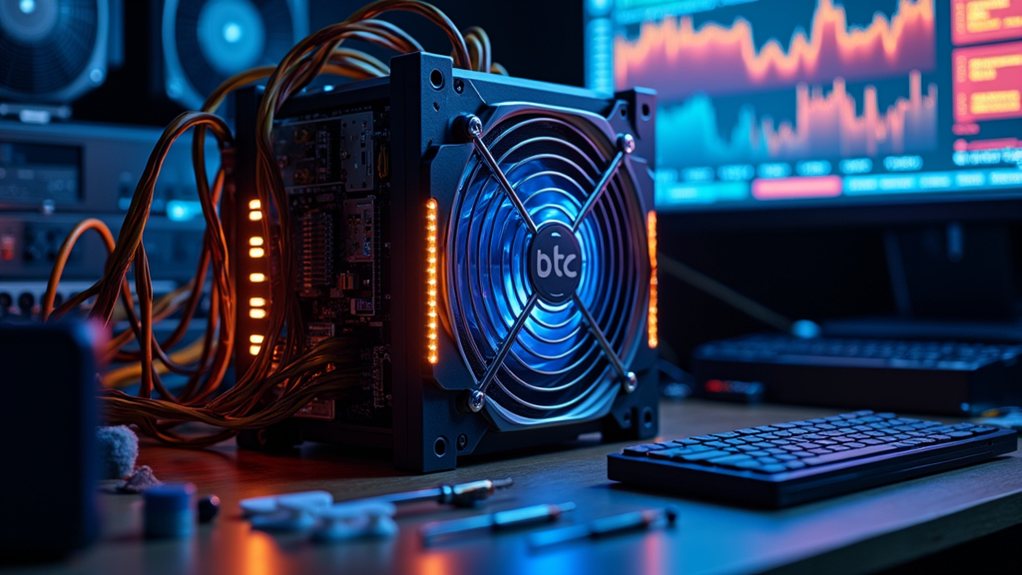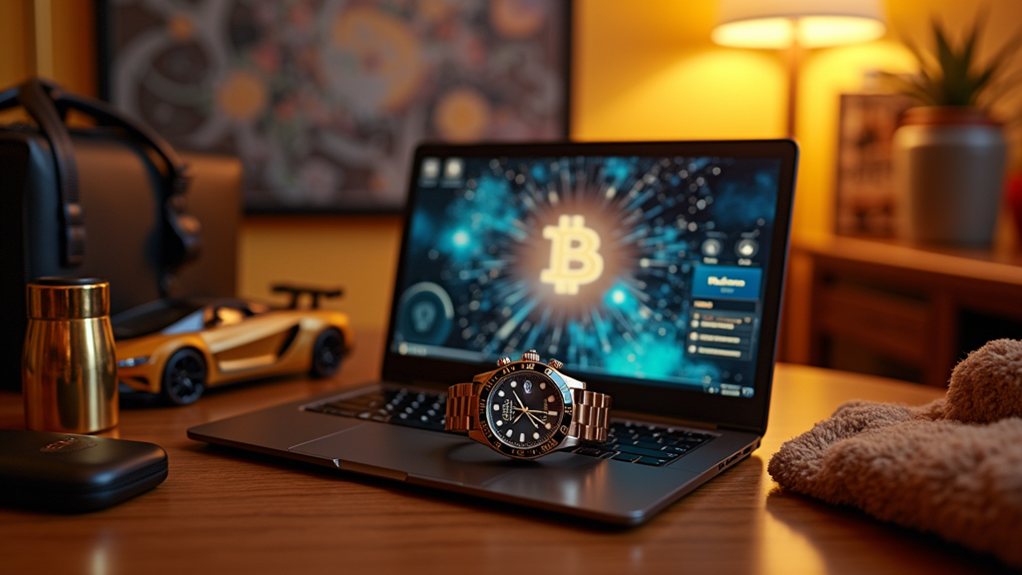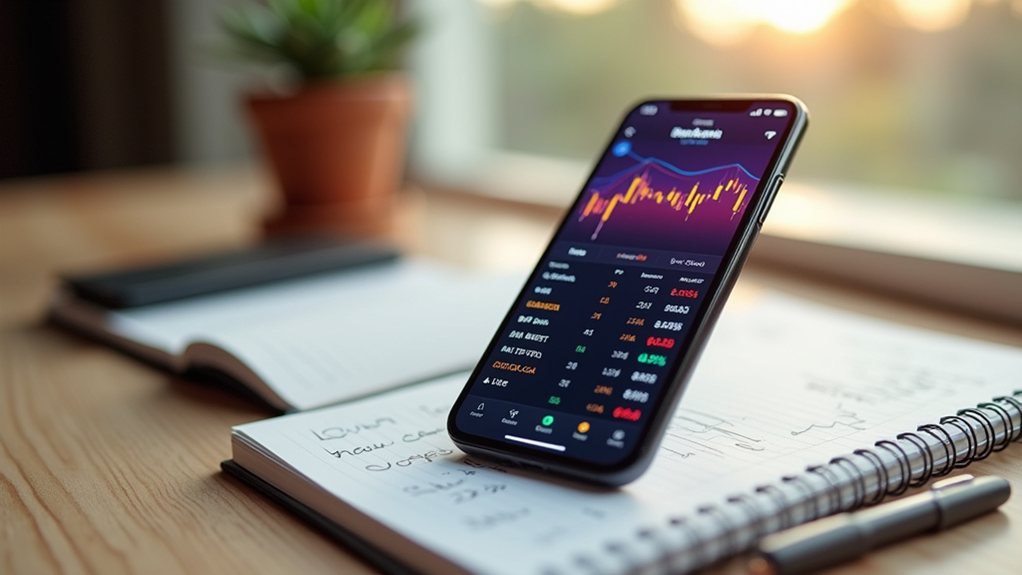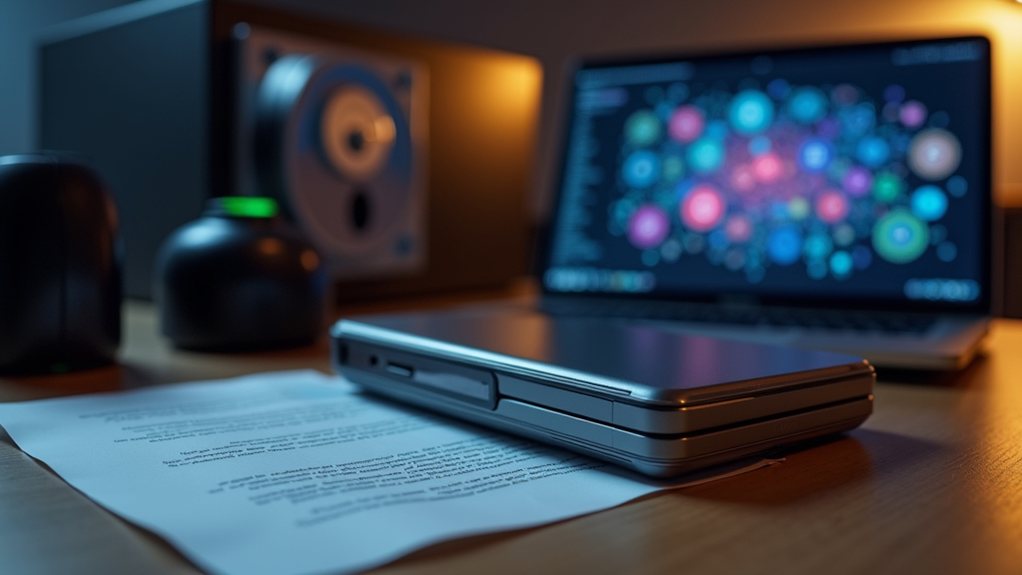Buying Bitcoin takes three straightforward steps. First, choose a reputable exchange with solid security and reasonable fees—places like Coinbase or Kraken work for beginners. Next, create an account and complete identity verification. Finally, connect a payment method and execute your purchase. Moving coins to a personal wallet afterward adds significant security. Not rocket science, but each step matters when you're jumping into digital currency. The details make all the difference.
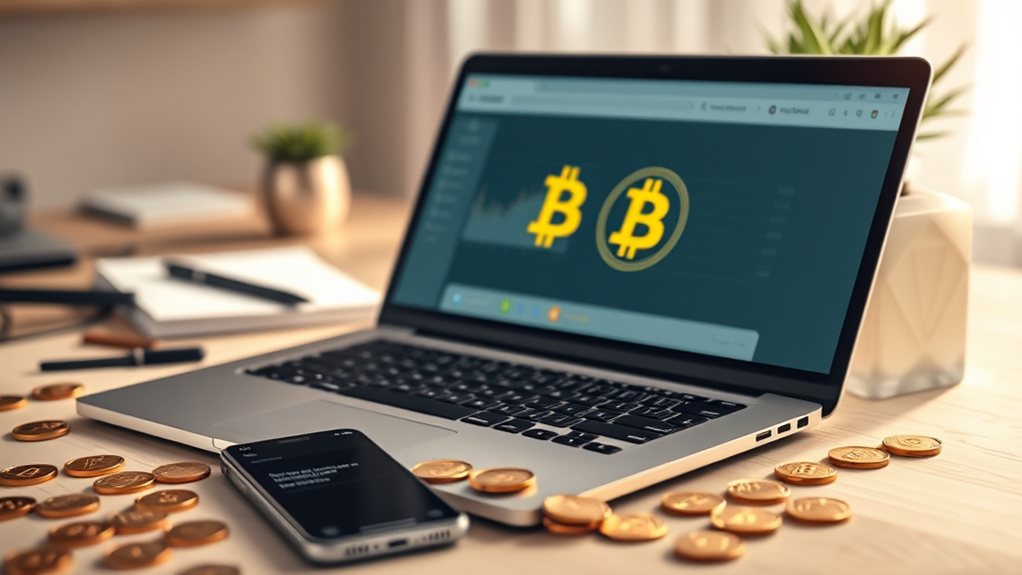
Diving into the Bitcoin market isn't rocket science, but it does require some know-how. The cryptocurrency world might seem intimidating at first glance – a digital Wild West filled with strange terminology and price charts that look like roller coaster blueprints. But strip away the complexity, and buying Bitcoin becomes surprisingly straightforward. Thousands of regular folks are doing it daily. No computer science degree required.
First things first: choose a reputable exchange. Not all Bitcoin marketplaces are created equal. Some charge fees that'll make your eyes water, while others might as well have "HACK ME" written in neon lights. Smart buyers compare fee structures, security features, and what actual users say about their experiences. Using tools like Cryptoradar allows you to easily compare 90+ exchanges based on prices, features, and user ratings. Regulated exchanges operating legally in your country should top your list. They'll let you buy using familiar payment methods – bank transfers, credit cards, whatever works. Coinbase is a popular option where Bitcoin is currently priced at approximately $82,550.00 per BTC.
Choosing a Bitcoin exchange is like dating—look for security, reasonable fees, and good reputation. The sketchy ones will cost you.
And make sure they've got decent trading volume; nothing worse than trying to make a transaction on a ghost town exchange. Check if they offer other cryptocurrencies too – might want to diversify later.
Once you've picked your platform, setting up shop is next. Account creation follows the usual drill: email, password, the works. Then comes the identity verification – the infamous KYC process. Yes, they'll want your ID. No, they're not trying to steal your identity. It's regulatory stuff. Deal with it.
Two-factor authentication isn't optional; it's your digital deadbolt. Link your bank account or preferred payment method and read those terms of service. Nobody does, but you should. After verification (which might take anywhere from minutes to days), fund your account. Bank transfers are usually cheapest but painfully slow. Credit cards offer instant gratification for a premium price. Watch out for those sneaky deposit fees.
With money locked and loaded, it's buying time. Find Bitcoin (usually labeled BTC) among the available options and decide how you want to play it. Market orders execute immediately at current prices. Limit orders let you name your price and wait for the market to come to you. Punch in your desired amount, review everything twice, and pull the trigger.
Congratulations! You're officially a Bitcoin owner. But don't celebrate just yet. Moving your digital gold to a personal wallet is critical – exchanges aren't fortresses. Hardware wallets offer bank-vault security for serious investors. Software wallets work for smaller amounts. Remember that cryptocurrencies are decentralized assets not controlled by any central authority. Backup your recovery phrase somewhere safe – lose that, and your Bitcoin vanishes into the digital ether. Forever. No customer service hotline to call. No reset button. Just tears.
Frequently Asked Questions
Is Bitcoin Legal in All Countries?
Bitcoin isn't legal everywhere. Period. As of 2023, it's legal in 119 countries, illegal in 22 (including China, Egypt, and Bolivia), and regulated in 62 others.
El Salvador made it legal tender in 2021—bold move. In 25 countries, the status remains murky at best. Some places embrace it fully, like Japan and Switzerland, while others like Russia and Turkey allow ownership but prohibit payments.
Politics, financial stability, and crime concerns drive these decisions.
What Are the Tax Implications of Buying Bitcoin?
Buying Bitcoin? Tax implications aren't pretty.
Uncle Sam treats crypto as property, not currency. When you eventually sell, expect capital gains tax.
Hold under a year? Ordinary income rates up to 37%. Over a year? Better rates at 0-20%.
Every transaction is taxable—trades, purchases, whatever. Reporting requirements are a mess.
Forms 8949, Schedule D, potential 1099s. The IRS is watching, folks. They're not known for their sense of humor.
How Do I Secure My Bitcoin After Purchasing?
Securing Bitcoin isn't rocket science.
Hardware wallets like Ledger or Trezor offer bank-vault level protection.
Software wallets? Convenient but riskier.
Never—repeat, never—store seed phrases digitally. Write that puppy down on paper and hide it somewhere good.
Multiple copies? Smart move.
Enable two-factor authentication everywhere possible.
And exchanges? They're not Fort Knox.
Transfer significant holdings to personal wallets. Exchanges get hacked. It happens.
Can I Buy Fractional Amounts of Bitcoin?
Yes, absolutely. Bitcoin's divisible into 100 million "satoshis," making it accessible for everyday investors.
Most platforms allow purchases starting at just $1-2. Coinbase? $2 minimum. PayPal, Cash App, Robinhood? Just $1. Gemini doesn't even have a minimum.
Watch those transaction fees though—they'll eat into small purchases.
And remember, a fraction of bitcoin experiences the same price swings as a whole coin. Same risk, smaller scale.
What Happens if I Forget My Bitcoin Wallet Password?
Forgetting a Bitcoin wallet password means potential financial disaster.
No reset button. No customer service hotline. Nothing. Those coins? Probably gone forever.
Some recovery services exist, but success rates vary. People have lost millions this way.
Hardware wallets help prevent this nightmare scenario. The cryptocurrency world doesn't forgive carelessness.
Best practice: secure backups in multiple locations.
Still, every year, more Bitcoin gets locked away forever by forgotten passwords.

